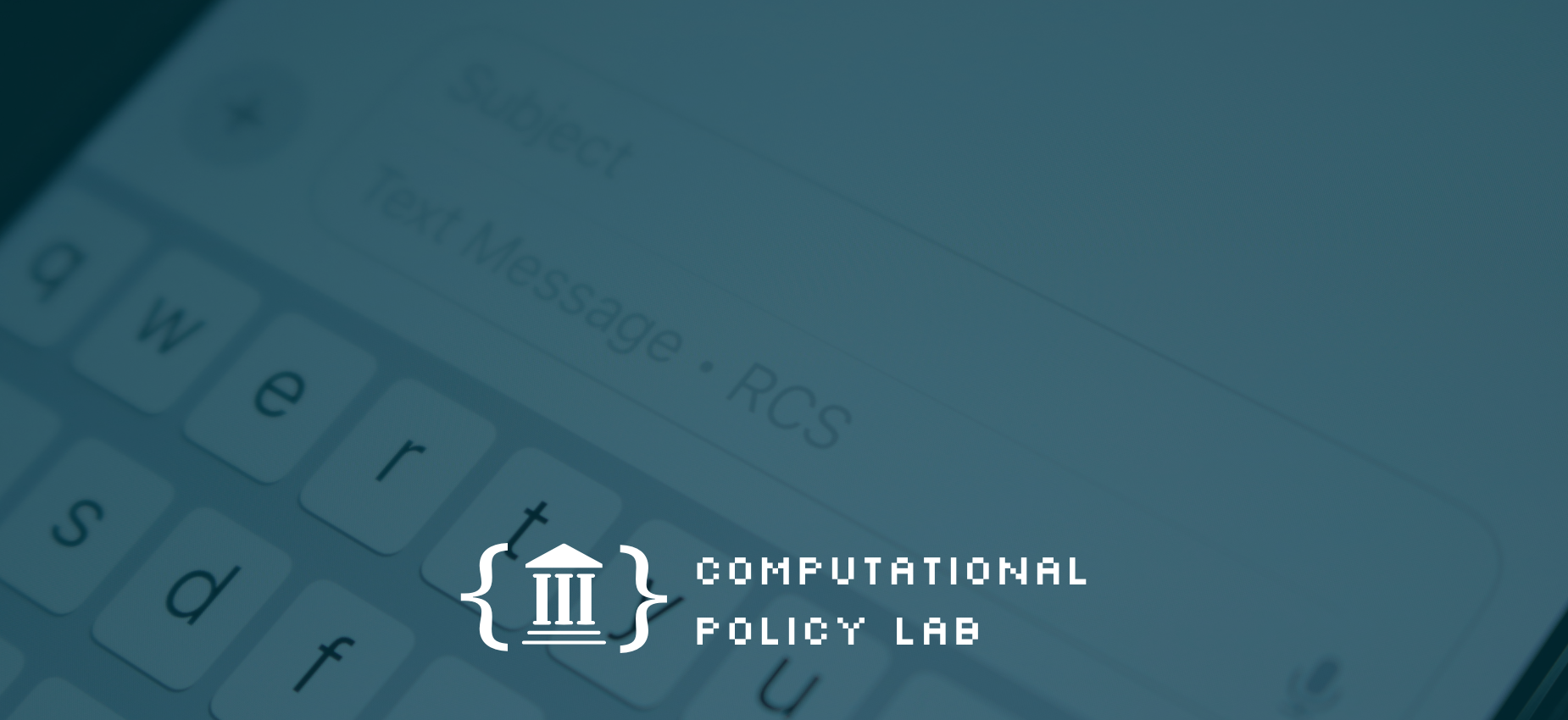
Reading Dies in Complexity – new study co-authored by Professor Todd Rogers
Center News
New study co-authored by Shorenstein Center resident faculty members Sharad Goel and Todd Rogers, along with collaborator Alex Chohlas-Wood, finds simple messaging campaigns can help avoid the negative consequences of missed court dates.

A new study published in Science Advances by three resident and affiliated faculty members of the Shorenstein Center shows clearly written text reminders can help people avoid jail triggered by missing court dates. Researchers affiliated with the Computational Policy Lab at at HKS—including Professor of Public Policy Sharad Goel and New York University Assistant Professor Alex Chohlas-Wood—along with HKS faculty member Todd Rogers, the Weatherhead Professor of Public Policy—partnered with the Santa Clara County Public Defender’s Office in California to test whether automated text reminders could keep people from missing court.
Every year, millions of Americans are required to appear in court. Missing a court date—even unintentionally—can have devastating consequences: arrest warrants, jail time, loss of housing, strained family ties, and long-term damage to employment prospects. The results of the Lab’s text message experiment in Santa Clara County were striking: simply written text message reminders reduced bench warrants by about 20% and lowered incarceration for missed court dates by a similar amount. Just a few timely easy-to-read reminders kept people out of jail.
Contrary to popular belief, many people don’t skip court because they’re trying to avoid justice. As the researchers explain, “The effectiveness of reminders bolsters the theory that lapses in memory or comprehension—rather than intentional noncompliance—drive missed court appearances.” A missed court date often isn’t a sign of defiance—it’s a sign that someone forgot, got confused, or couldn’t juggle the logistics of daily life.
When someone misses a required court appearance, judges often issue what’s called a bench warrant. That means the next time the person encounters law enforcement—even during a routine traffic stop—they can be arrested and sent to jail. Pretrial jail time, even just a few days, can lead to major life disruptions: losing a job, missing rent, or being separated from children, for example.
The research team randomly assigned 5,709 clients of the Santa Clara County Public Defender’s Office to one of two groups: roughly half received no reminders, with the remainder receiving automated easy-to-read text messages in the week leading up to each court date. The reminders were concise, clear, multilingual (English, Spanish, Vietnamese), and included details like the time, place, and consequences of missing court.
The results show reminders made a big difference:
This study demonstrates that automated, comprehensible court reminders can directly reduce incarceration—not just increase appearance at court.
It’s a privilege to work with Professor Goel’s Computational Policy Lab, which is solving real-world policy challenges with public partners. This study shows that when we match the communication channel to the behavior—and use clear, simple language—we can make a real difference in keeping people out of jail.
Todd Rogers
Weatherhead Professor of Public Policy
Harvard Kennedy School


Media Mention
